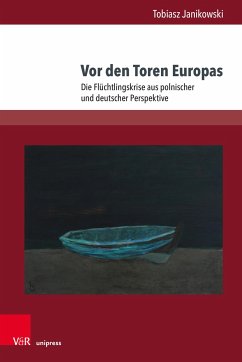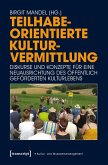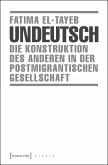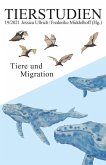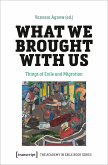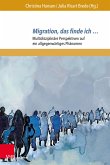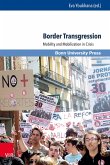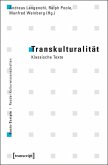Das Auftreten einer massenhaften Migration vorwiegend aus dem Nahen Osten und Nordafrika stammender Geflüchteter zog eine lebhafte Debatte unter Politikern, Journalisten und Vertretern der Wissenschaft nach sich. Die Formierung eines neuen Diskurses wurde unter den Vertretern des Alten Kontinents von Anfang an von einer sichtbaren Tendenz begleitet, die neue sozialpolitische Wirklichkeit auf eine möglichst sachliche - obwohl nicht emotionsfreie - Weise darzustellen, wobei die meinungsstiftende Wirkung externer Impulse sich nach wie vor als evident offenbart. Dieser Band geht von der Definition des Phänomens des Anderen und Fremden sowie von der Darstellung historischer und kultureller Kontexte aus. Ferner wird der medialen Durchschlagskraft des Begriffs »Flüchtlingskrise« besondere Aufmerksamkeit geschenkt, um ihn schließlich mit unterschiedlichen Abhängigkeits- und Interpretationsmodellen zu konfrontieren und Antwort auf die Frage zu suchen, wie sich die kulturellen Erscheinungsformen des Anderen und Fremden aus polnischer und deutscher Perspektive positioniert bzw. verändert haben.
The 2015 immigration wave, including mostly migrants from the regions of Middle East and North Africa, was followed by a heated discussion among politicians, journalists, publicists, and representatives of the academic community. The formation of a new discourse was accompanied by a more or less conspicuous intention to assume a role of representatives of the Old Continent. Furthermore, one could observe attempts to substantively describe - yet not without an emotional overtone - the new social-political reality and its dynamic changes taking place under the influence of external impulses. This volume starts with a general outlook on the phenomenon of homeliness and otherness and the related cultural and historical contexts just to subsume the notions within a network of interrelations and interpretative models that are being outlined from a perspective of Poland and Germany with a specific focus to take the 'migration crisis' and its strength of impact into consideration.
The 2015 immigration wave, including mostly migrants from the regions of Middle East and North Africa, was followed by a heated discussion among politicians, journalists, publicists, and representatives of the academic community. The formation of a new discourse was accompanied by a more or less conspicuous intention to assume a role of representatives of the Old Continent. Furthermore, one could observe attempts to substantively describe - yet not without an emotional overtone - the new social-political reality and its dynamic changes taking place under the influence of external impulses. This volume starts with a general outlook on the phenomenon of homeliness and otherness and the related cultural and historical contexts just to subsume the notions within a network of interrelations and interpretative models that are being outlined from a perspective of Poland and Germany with a specific focus to take the 'migration crisis' and its strength of impact into consideration.

